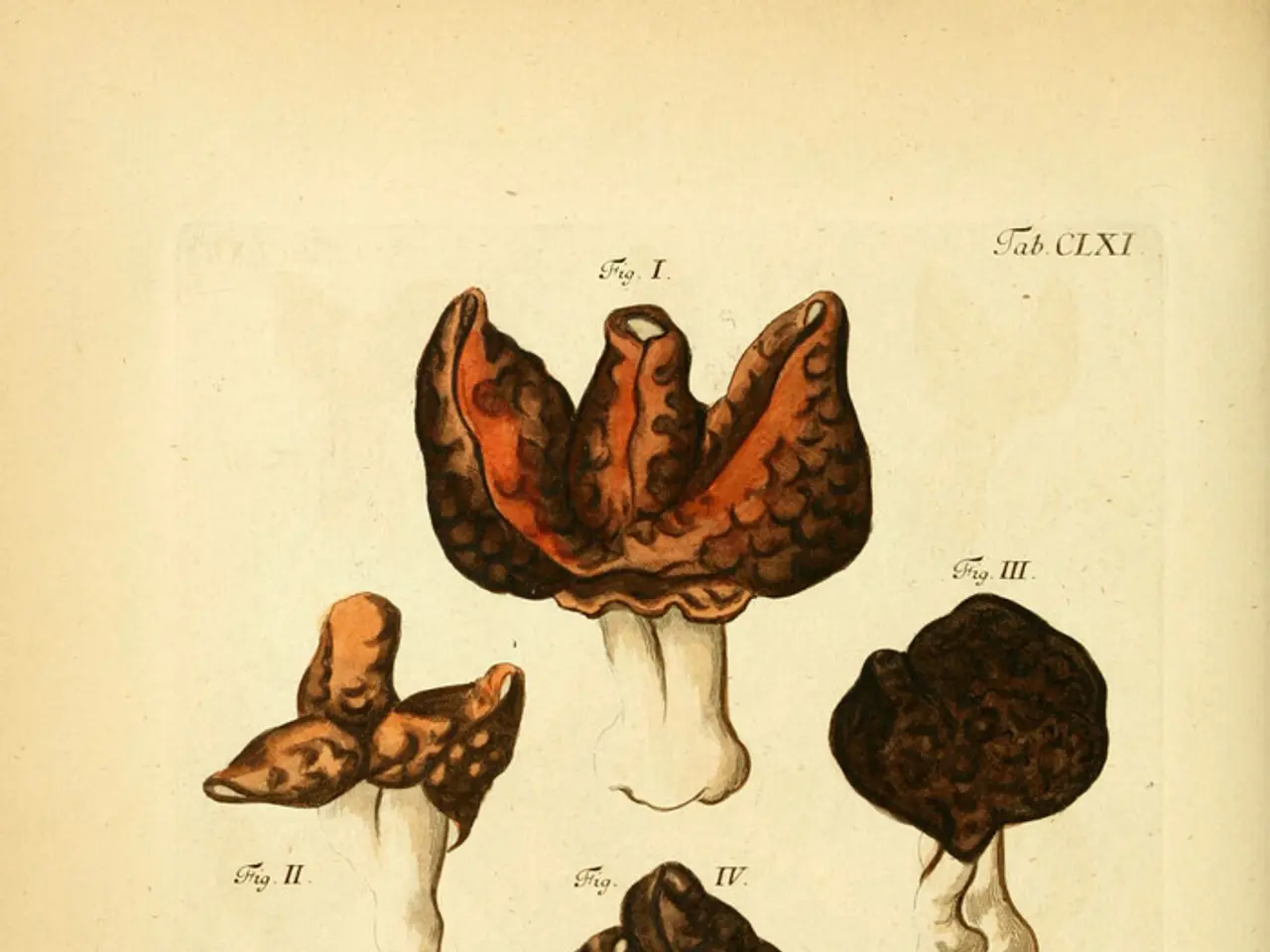Right-sided Headache: Understanding Sources, Implications, and Quick Alleviation Strategies
Rewritten Article:
Hey there! Let's dive into the world of one-sided headaches, particularly those that hit the right side of your noggin. From medication use to migraines, there are numerous causes to explore. Buckle up!
Headaches, simply put, are no fun. They can pop up everywhere, last for varying durations, and affect different areas. This article aims to shed light on those pesky right-sided headaches.
What's causing that right-side pain?
Headaches can stem from conditions that usually affect one side, while others can cause a more general discomfort. Let's break it down:
Singular-sided conditions
A right-sided headache might be a sign of:
- Temporal Arteritis: Inflammation of the temporal artery, often on one side, can lead to fatigue, jaw pain, and tender temples besides the headache.
- Trigeminal Neuralgia: This disorder messes with your trigeminal nerve, causing intense facial and head pain. The pain usually hits one side and can be triggered by facial movements.
- Sinus headaches: People with a deviated septum often encounter sinus headaches, which can be localized to one side due to snotty situations in the sinuses.
General conditions
Occipital neuralgia, causing pain at the back of the head and neck, often strikes both sides but may localize to one. Other causes include:
- Allergies
- Aneurysms
- Fatigue
- Head injury
- Infections, such as sinus infections
- Fluctuations in blood sugar
- Dehydration
- Muscle strains in the neck
- Tumors
Medication use
Don't forget about the possibility of headaches caused by medication, be it prescription or over-the-counter (OTC) treatments. Overusing OTC painkillers like acetaminophen (Tylenol), aspirin, and ibuprofen (Motrin, Advil) can lead to a condition called medication overuse headache, a common occurrence worldwide.
What types of headaches hit the right side?
There's a plethora of headaches out there, some primary and others secondary. However, migraines and cluster headaches stand out as likely culprits for one-sided headaches. Tension headaches may also cause pain on one side for certain individuals.
Migraines
Genetics play a role in migraines, resulting in severe symptoms like pulsating or throbbing pain in the affected area, blurred vision, nausea, sensitivity to light and sound, and vomiting. Although migraines might seem to target the same side every time, it's not always the case—this could signal a more serious issue, such as a tumor.
Cluster Headaches
Cluster headaches are severe, recurring headaches that typically affect one side of the head around the eye. They can sometime radiate to other areas like the neck and shoulders. Cluster headaches follow a cyclical pattern, with people experiencing frequent attacks for weeks or months, followed by a period of remission. Other symptoms include facial sweating, pale or flushed skin, red or watery eyes, restlessness, and nasal congestion.
Tension Headaches
Tension headaches are the most common types, impacting around 1 in 5 people. Chronic tension-type headaches affect people who experience headaches on more than 15 days every month that last several hours or more. These headaches usually affect both sides of the head, but some individuals may experience them on only one side.
When to seek medical help
While many headaches resolve on their own, it's crucial to identify the underlying cause if headaches are a regular occurrence. If you experience the following symptoms in addition to a headache, seek immediate medical attention:
- Vision changes
- Confusion
- Fever
- Head injury
- Increased pain during movement
- Neck stiffness
- Numbness
- Personality or cognitive changes
- Rash
- Sleep disturbances
- Slurred speech
- Weakness
When headaches are only on the same side, it is a cause for concern and requires a medical evaluation.
Common Questions
Understanding the location of a headache can help your doctor diagnose the type of headache affecting you and plan appropriate treatment. For example, pain at the front or on one side of the head might indicate migraines or cluster headaches.
Some headaches resolve on their own. At-home treatments, like OTC medications or taking a nap, can help alleviate symptoms. However, if headaches persist, are severe, progressively worsen, or occur alongside other symptoms, including vision changes or slurred speech, seek medical assistance.
Dehydration can cause or exacerbate headache symptoms and headache disorders. Staying well-hydrated is key to preventing such headaches. To treat dehydration headaches, doctors generally address the dehydration by replenishing fluids.
Migraines often affect one side of the head, but an individual's migraines should not consistently hit the same side, unlike with one-sided headaches caused by neurological issues, tension headaches, or medication side effects.
- A right-sided headache can potentially indicate temporal arteritis, trigeminal neuralgia, or sinus headaches—all singular-sided conditions.
- Occipital neuralgia, causing pain at the back of the head and neck, can also occur on one side but may affect both sides.
- Allergies, aneurysms, fatigue, head injury, infections, fluctuations in blood sugar, dehydration, muscle strains in the neck, tumors, and medication use can all cause headaches that affect various areas, including the right side.
- Migraines and cluster headaches are types of headaches that frequently affect one side, such as the right side.
- Tension headaches, while usually affecting both sides, can occasionally cause pain on only one side, including the right side.
- If headaches are a recurring issue, it's essential to identify the underlying cause to receive appropriate treatment and potentially avoid conditions such as neurological issues, tension headaches, or medication side effects.
- Seek immediate medical attention if symptoms like vision changes, confusion, fever, head injury, increased pain during movement, neck stiffness, numbness, personality or cognitive changes, rash, sleep disturbances, slurred speech, weakness, or vision changes accompany a headache.
- Staying well-hydrated is essential to prevent or lessen the effects of headaches caused by dehydration. If a headache is caused by dehydration, doctors may suggest replenishing fluids to treat the condition.








